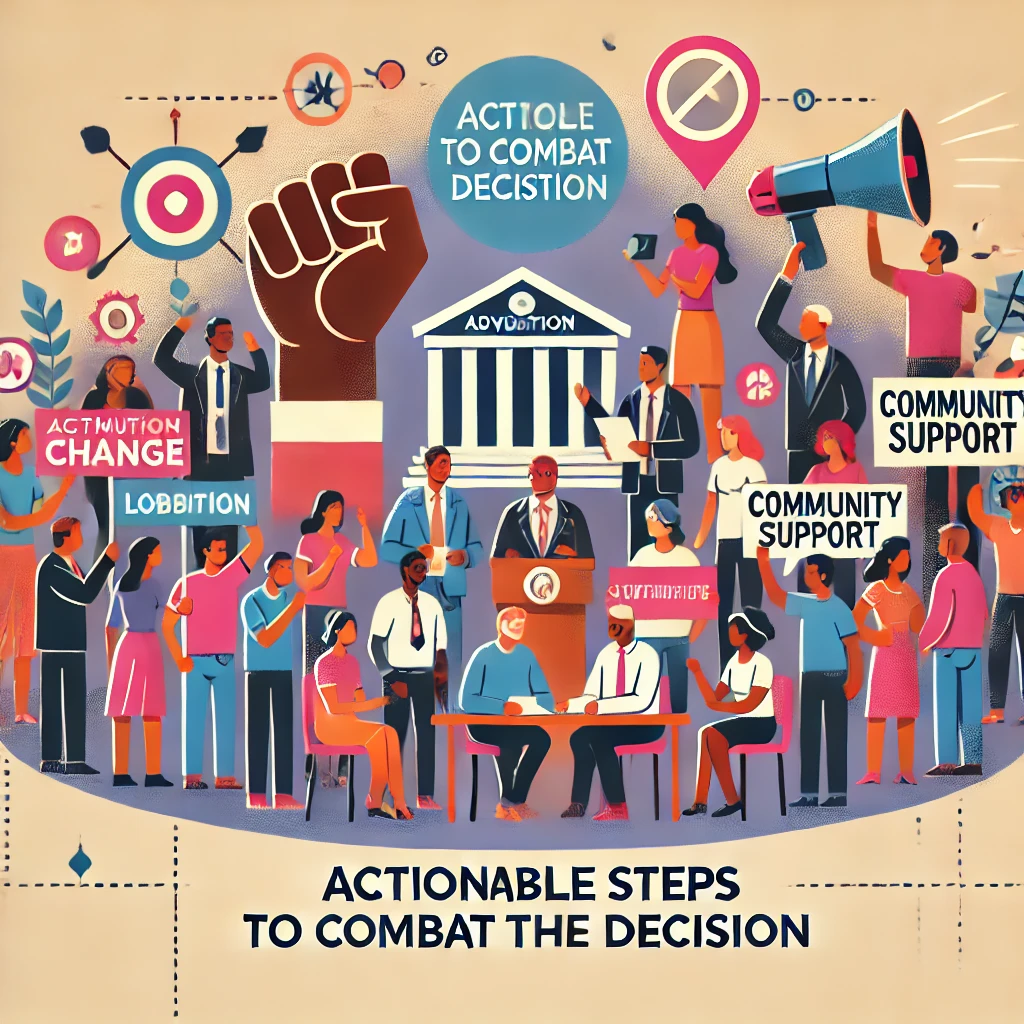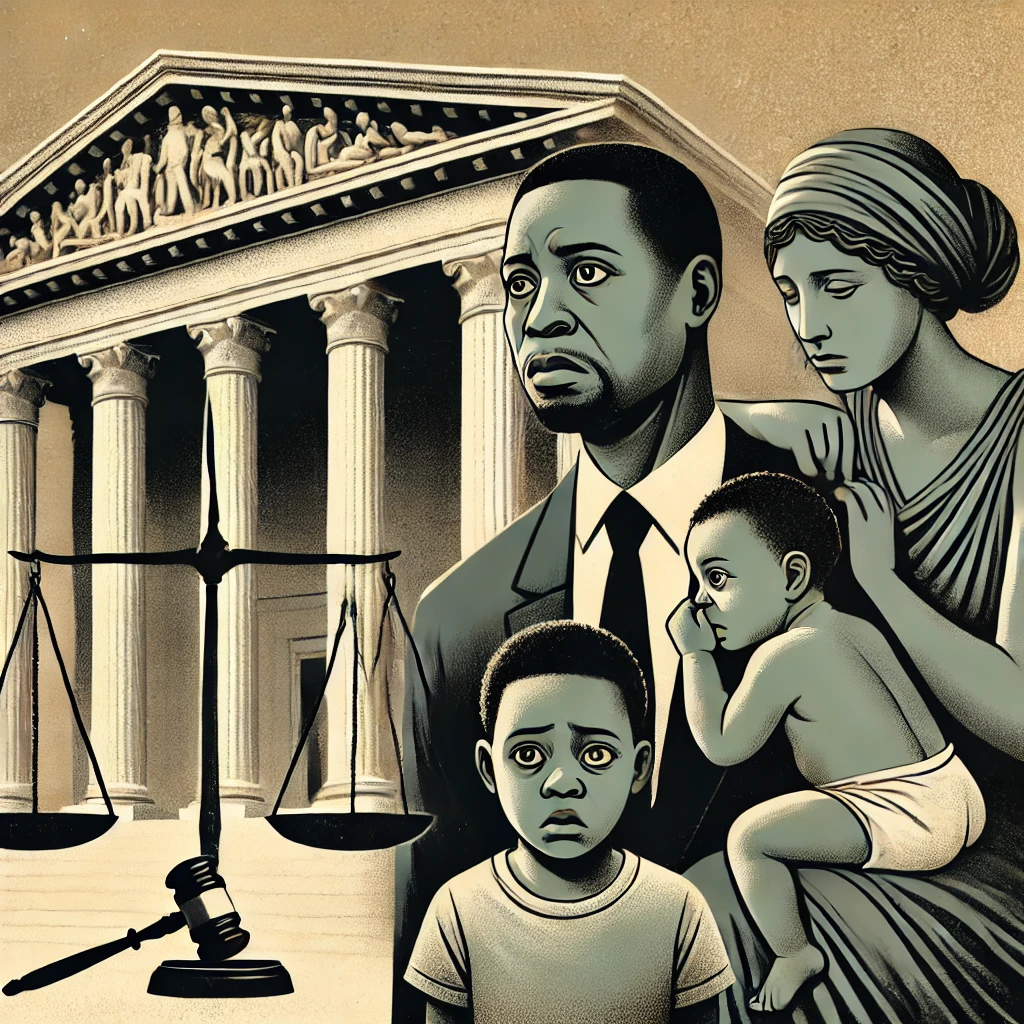- Introduction
- The Decision’s Impact on Minorities and Black Families
- Actionable Steps to Combat the Decision
- Highlighting the Data
- Summary
- Reference
Introduction
On June 28, 2024, the Supreme Court delivered a ruling in the City of Grants Pass v. Johnson case, which has profound implications for minority communities and Black families facing economic hardship (Supreme Court of the United States, 2024). The decision, reversing the Ninth Circuit’s injunction against the enforcement of public camping laws, marks a significant shift in how homelessness and public camping are regulated.
This ruling disproportionately affects minority groups, exacerbating existing socioeconomic inequalities and imposing additional burdens on Black families already struggling with economic stress.
The Supreme Court ruling in City of Grants Pass v. Johnson applies to the entire United States. When the Supreme Court issues a decision, it sets a precedent that all lower courts nationwide must follow. This means that the decision regarding enforcing public camping laws and interpreting the Eighth Amendment’s Cruel and Unusual Punishments Clause will affect how similar cases are handled nationwide, not just in Oregon.
The Decision’s Impact on Minorities and Black Families
The Supreme Court’s decision allows cities to enforce laws prohibiting camping on public property, even when homeless individuals exceed the available shelter capacity. This ruling is particularly detrimental to minorities and Black families, who are disproportionately represented among the homeless population. According to a 2023 report by the Department of Housing and Urban Development (HUD),
Nearly 4 in 10 people experiencing homelessness identified as Black, African American, or
–HUD Releases January 2023 Point-in-Time Count Report, 2023
African. People who identify as Black made up just 13 percent of the total U.S. population but
comprised 37 percent of all people experiencing homelessness.
For Black families, the economic stress of homelessness is compounded by the legal implications of the Supreme Court’s decision. With the threat of fines and imprisonment for camping on public property, these families face increased financial strain and the risk of criminal records, which can further hinder their ability to secure employment and stable housing. The ruling essentially criminalizes poverty, disproportionately targeting those who are already marginalized.
Actionable Steps to Combat the Decision

- Advocacy and Policy Change:
- Lobby for State and Local Reforms: Advocate for state and local governments to adopt policies that provide more comprehensive support for homeless individuals, such as increasing funding for affordable housing and shelters.
- Promote Decriminalization: Push for the decriminalization of homelessness by supporting legislation that prohibits punitive measures against individuals for sleeping in public spaces when no alternative shelter is available.
- Community Support and Resources:
- Expand Access to Services: Increase funding and support for community organizations that provide essential services to homeless individuals, including food, healthcare, and job training programs.
- Community Outreach Programs: Develop and support outreach programs that connect homeless individuals with available resources and assist them in navigating social services.
- Legal Assistance and Protection:
- Provide Legal Aid: Ensure that homeless individuals have access to legal representation to defend against fines and imprisonment. Legal aid organizations can offer pro bono services to those impacted by the ruling.
- Monitor Enforcement Practices: Establish watchdog groups to monitor how cities enforce camping laws and report any abuses or discriminatory practices to appropriate authorities.
Highlighting the Data

A study by the National Alliance to End Homelessness found that Black and minority groups are disproportionately affected by homelessness. Specifically, Black Americans are significantly overrepresented among the homeless, with nearly 40% of the homeless population being Black (HUD, 2024). This disparity is due to a combination of historical and systemic factors, including discriminatory housing policies, economic inequities, and inadequate access to healthcare and social services.
Summary
The Supreme Court’s decision in City of Grants Pass v. Johnson has far-reaching implications for minority communities and Black families facing economic hardship. By criminalizing public camping, the ruling exacerbates existing inequalities and places additional burdens on those who are already marginalized (Sousa et al., 2024). To combat the adverse effects of this decision, it is crucial to advocate for policy changes, expand community support, and provide legal assistance to those affected. Addressing the root causes of homelessness and ensuring equitable access to resources are essential steps in mitigating the impact of this ruling on minority communities and Black families.
Reference
- Homelessness and Racial Disparities – National Alliance to End Homelessness. (2023, December 18). National Alliance to End Homelessness. https://endhomelessness.org/homelessness-in-america/what-causes-homelessness/inequality/
- HUD releases January 2023 Point-in-Time Count Report. (2023, December 15). HUD.gov / U.S. Department of Housing And Urban Development (HUD). https://www.hud.gov/press/press_releases_media_advisories/HUD_No_23_278
- National Alliance to End Homelessness. (2017). Faith-Based Organizations: Fundamental Partners in Ending Homelessness. Retrieved from https://endhomelessness.org/wp-content/uploads/2017/02/faith-based-partners-in-ending-homelessness.pdf
- Sousa, T. de, Andrichik, A., Prestera, E., Rush, K., Tano, C., & Wheeler, M. (2024). The 2023 annual homelessness assessment report (AHAR) to Congress: Part 1: Point-in-time estimates of homelessness. Abt Associates. U.S. Department of Housing and Urban Development. https://www.huduser.gov/portal/sites/default/files/pdf/2023-AHAR-Part-1.pdf
- Supreme Court of the United States. (2024). 23-175 City of Grants Pass v. Johnson. Retrieved from https://www.supremecourt.gov/opinions/23pdf/23-175_09m1.pdf






Leave a Reply